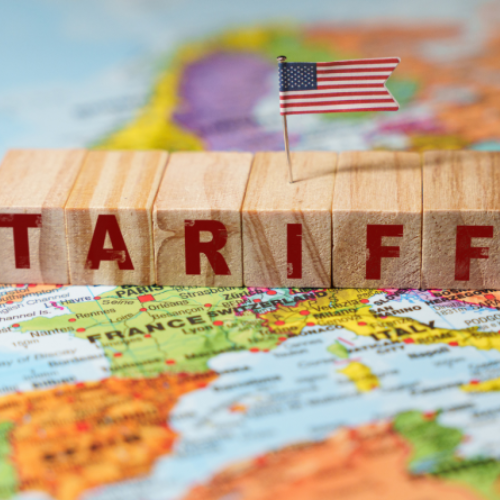A new government study has found that tariffs being imposed by the United States could cost Northern Ireland millions of pounds and hundreds of jobs over the next 15 years. These tariffs are like extra taxes added to goods being sent from the UK to the US. If these taxes stay in place, Northern Ireland’s economy could end up £85 million smaller than it would have been otherwise.
This doesn’t mean the economy will stop growing. It simply means that growth will be slower than expected, and some of that potential will be lost. The Department for the Economy study looked only at the direct impact on goods exported from Northern Ireland. It did not include extra effects like possible job losses in shops, transport, or other related areas.
The biggest losses would happen if the US decides to raise tariffs even more, especially on pharmaceutical products—things like medicines and health supplies made in Northern Ireland and sold to the US. If a 20% tariff is placed on these items, the potential economic loss could rise to £110 million. That’s a big blow to the region’s future income.
Pharmaceutical Industry Most at Risk
Pharmaceuticals are one of Northern Ireland’s most important industries when it comes to selling goods to the United States. Almost half of what this sector makes is shipped to the US. That means any changes to US rules can have a strong effect on businesses in Northern Ireland that make medical products.
If a 20% tariff is applied to pharmaceutical goods, production in that industry could drop by about 5% compared to a future where no tariffs were put in place. That means fewer goods being made, fewer goods being sold, and possibly fewer people being employed.
This is particularly worrying because the US government is also doing a legal investigation into how important pharmaceutical imports are to national security. If the US finds a reason to label these imports a risk, it could lead to even tougher tariffs being allowed by law.
Jobs and Areas Under Pressure
The Department for the Economy’s study says around 800 jobs could be lost over the next 15 years if these tariffs stay in place. Most of these job losses would be in areas that rely heavily on factories and manufacturing. Places like Mid Ulster, and Armagh, Banbridge and Craigavon would be hit the hardest.
These areas are known for having a strong base in manufacturing and pharmaceuticals. Losing jobs here would not only hurt the people directly affected, but it could also unbalance the wider regional economy. The report says this would be a “significant headwind” for businesses in these parts of Northern Ireland. In simpler terms, it would make it much harder for these companies to grow and sell their products overseas.
The study also points out that this isn’t just about numbers and money. When large employers in small areas are affected, the whole community can feel the impact. Families, schools, and services all depend on a strong local economy. If businesses struggle, the effects can ripple out across daily life.
Tariffs Already in Action Despite Legal Disputes
The current 10% tariff that the US has placed on most imported goods—including those from the UK—is already being collected. These tariffs were introduced under an emergency law, but a US trade court recently ruled that this law did not give the government the power to do that without extra approval. Still, the US administration is appealing that decision, so the tariffs remain in place for now.
There have also been cases where even higher tariffs were announced on certain goods, only for them to be paused for 90 days to allow for trade talks. But there’s no guarantee that those talks will stop the tariffs long term.
Tariffs are one of the key tools being used by the US government to try to protect its own industries. But when tariffs are placed on imported goods, it makes those goods more expensive and harder to sell. This has created serious challenges for places like Northern Ireland that rely on exporting products, especially to major markets like the United States.


